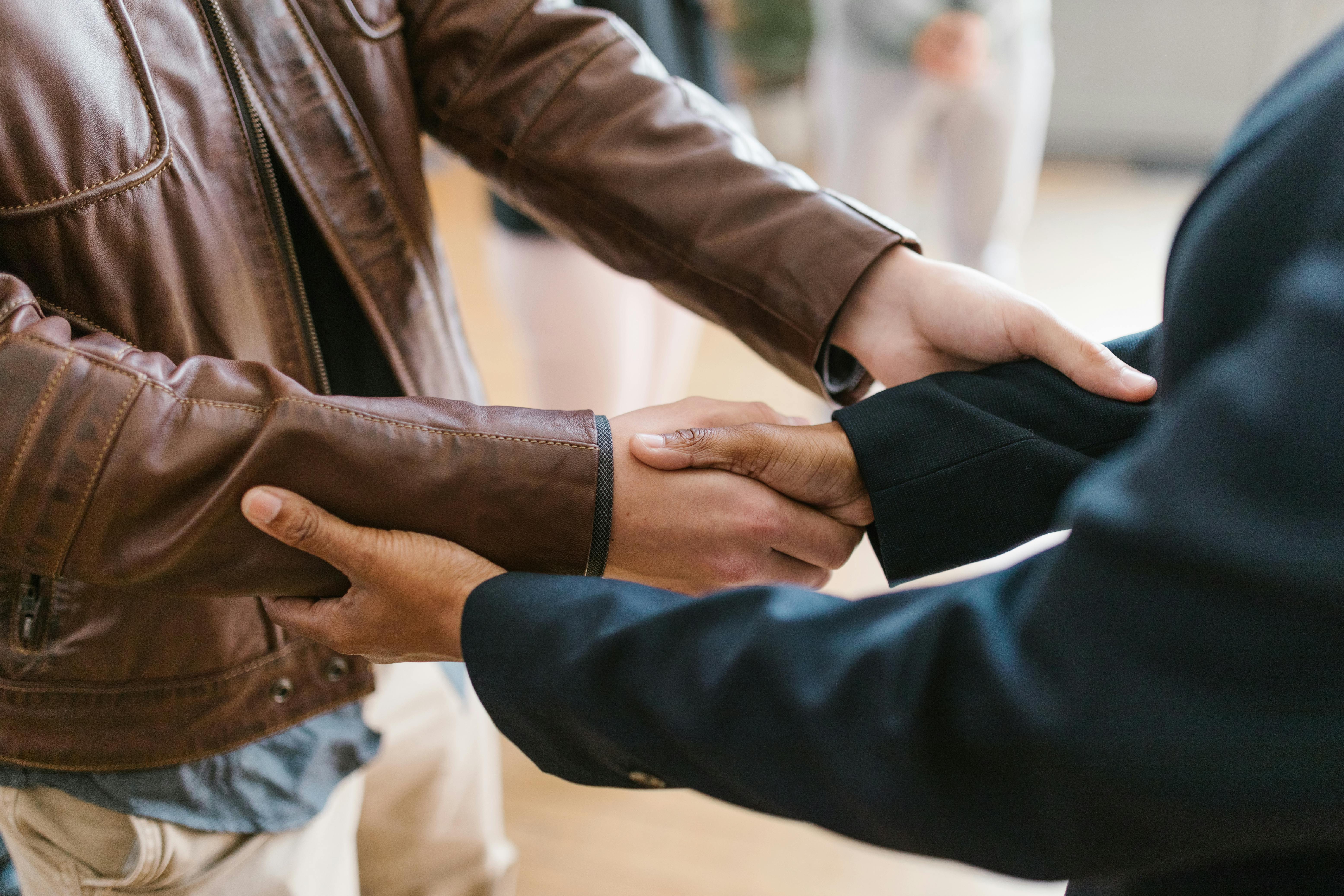
When there’s a language barrier, we rely on nonverbal cues more than ever. What many Westerners don’t realise is harmless nonverbal communication at home can be offensive in the east. Chinese culture is influenced by Confucius' philosophical thinking which is more reserved with fewer gestures than many other cultures.
Before you take your trip, read up so you don’t make the wrong impression and offend your Chinese host. We have covered six of the most common questions we get asked about Chinese non-verbal communication.
#1 How do Chinese Business People Greet Each Other?
A handshake is becoming a standard Chinese business greeting particularly when meeting foreigners. However, it is safest to wait for your host to offer their hand first in case they prefer not to shake. Don’t expect an enthusiastic, firm handshake.
Chinese handshakes are often prolonged, with a limp hand rather than a firm grip. People use a limp hand to signify respect and humility. If you don’t shake hands, nod your head slightly when meeting.
While it’s difficult to maintain any personal space in public in China’s crowded cities, it is polite to consider another person’s space in a business setting and have only minimal physical contact. Avoid gestures like backslapping or touching someone’s arm when speaking to them.
#2 Is the Pinky Finger Offensive in China?
The pinky finger can cause offence in China. You shouldn’t point with your pinky finger because it’s like giving someone the thumbs down here.
If you need to gesture to an object or person, it’s safest to use your whole hand rather than a finger.
In a Western country if you want to beckon to someone, you place your palm up and move your index finger. In the east you should avoid this motion. Instead, place the palm down and move all fingers together which to a Westerner may confuse because we use a similar hand motion to wave goodbye.
#3 Do Chinese People Bow?
Don’t make the mistake of thinking all Asian cultures are the same. Bowing relates more to Japanese culture than Chinese. In China bowing is a sign of respect for elders and ancestors. When a Chinese person bows they make a fist with their right hand held in their left hand in front of their stomach. They may bow slightly or low depending on the level of respect they wish to express.
In a regular business setting, a slight nod or small bowing movement with your head may be appropriate when shaking hands with senior people.
#4 Is it OK to Look a Chinese Person in the Eye?
A fleeting look is fine but avoid direct and prolonged eye contact in China. Steady eye contact is not appropriate, particularly when a subordinate is talking to their superior. If the gaze is too long they may interpret it as a gesture of defiance or challenge. So don’t be surprised if someone you are talking to looks away or appears disinterested.
#5 What About My Feet?
It’s rude to gesture with your feet as Chinese people consider them to be dirty. If you cross your legs, check your feet aren’t pointing at anyone. Don’t use a foot to point to an object or put your feet up on any kind of furniture. Even if you need to put down your bag, it‘s best to place it on a chair instead of the dirty ground. Taking off your shoes and wearing socks in the plane is also frowned upon because the floor is dirty.
#6 Do I Need to Be Careful with my Hands?
Chinese people don’t like to use their hands or arms to talk like many Westerners do. If you are someone who talks with their hands try to limit your hand gestures as they can make you seem rude or obnoxious. In fact, keep your hands by your side throughout your China trip. Don’t be too familiar by touching your host. They can view a friendly pat on the arm or back as too much touchiness.
Different cultures require you to communicate differently to how you would back home. If you don’t have time to travel to China to source manufacturers and suppliers yourself, call Vara Allied on (08) 6115 0118 or contact us online.